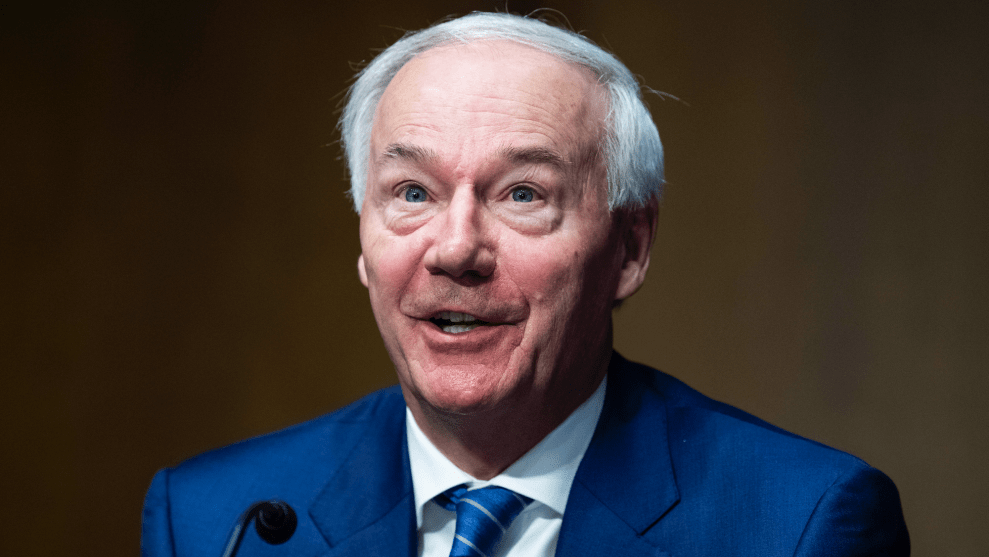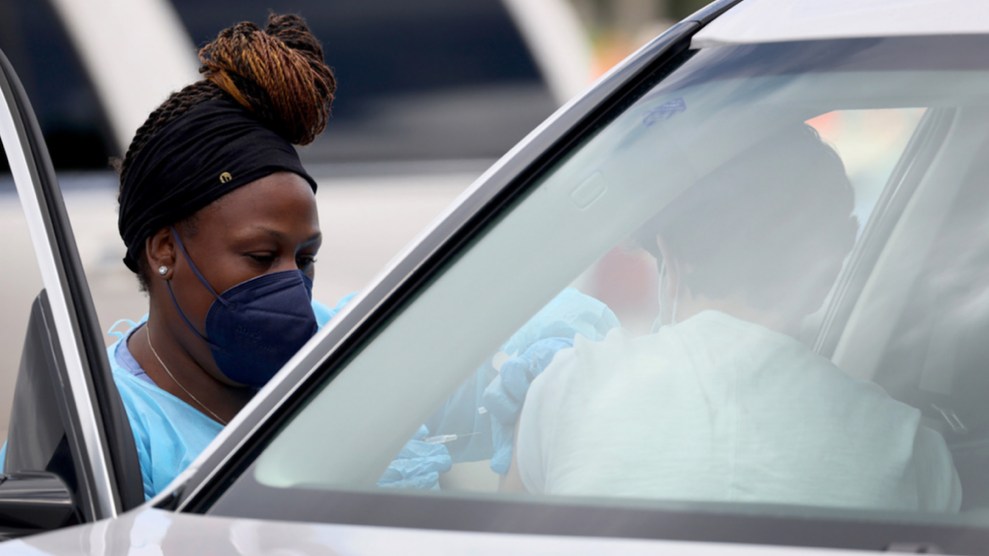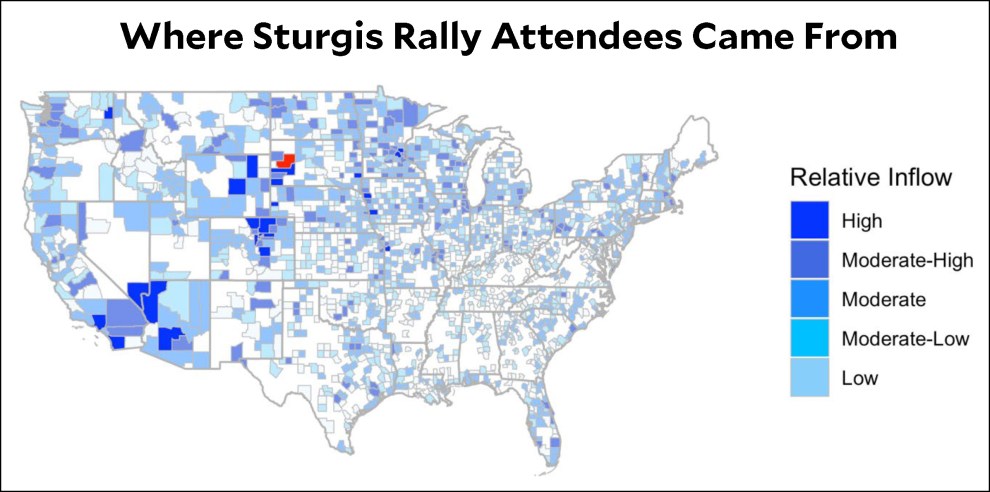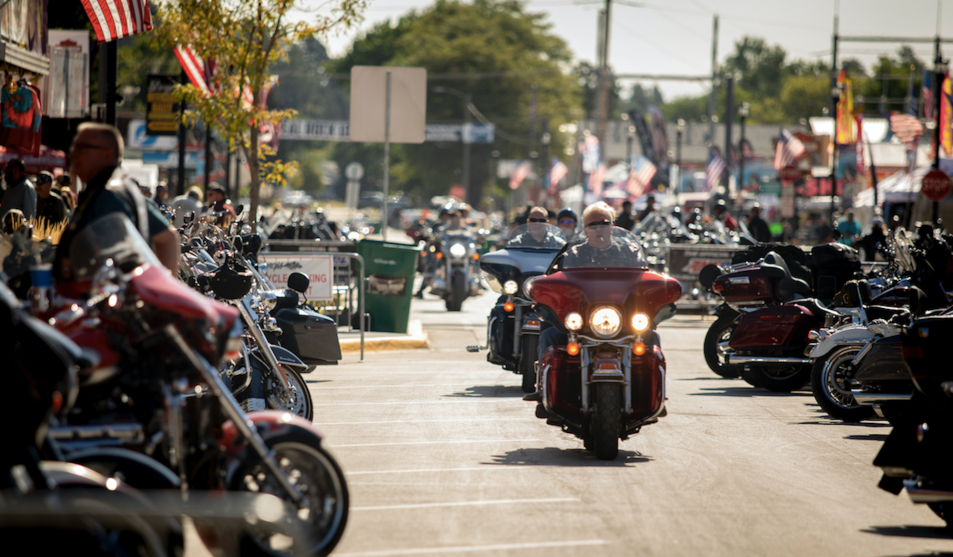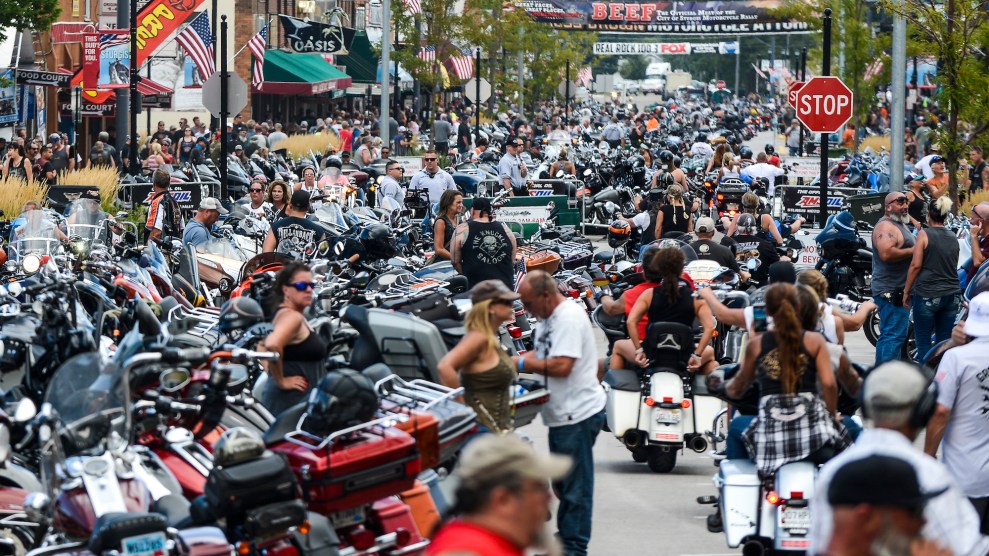
Michael Ciaglo/Getty
While the Delta variant continues to drive new COVID outbreaks and hospital bed shortages around the country, an estimated 700,000 people are expected to pack into a small South Dakota town this week for the annual Sturgis Motorcycle Rally—a 10-day bacchanal of bikers from around the country and the world.
During last year’s rally—one of the largest public gatherings held in the first part of the pandemic—the virus spread from body to body as attendees expressed defiance at COVID restrictions by packing into bars, music venues, and restaurants. Almost none wore masks. The event, CDC researchers wrote in a study published this summer, had “many characteristics of a superspreading event: large crowds, high intensity of contact between people, potential for highly infectious individuals traveling from hotspots, and events in poorly ventilated indoor environments.” Contact tracers identified 463 attendees and 163 secondary and tertiary contacts who got COVID as a result of the rally—including 17 people hospitalized and one who died.
But these numbers underestimate the rally’s true impact on viral spread nationally, CDC researchers concluded, because attendees with mild or asymptomatic illness may not have been tested. On the other hand, an analysis by a group of economists, while not peer reviewed, gives an idea of the upper limit of Sturgis’ impact. Their study, which analyzed anonymized cell phone location data and COVID case rates by county, estimated that last year’s rally was responsible for more than 266,000 new COVID cases nationwide. “The Sturgis Motorcycle Rally represents a situation where many of the ‘worst-case scenarios’ for super-spreading occurred simultaneously,” the economists wrote. (Read a critique of their conclusions here.)
The CDC researchers, meanwhile, implied in their recent paper that this year’s rally should be postponed. “Recent modeling suggests that interventions such as postponing voluntary, mass events may be the most viable option to maintain epidemic control in an unvaccinated population,” they wrote. If postponement was “not an option,” the researchers continued, they recommended public messaging on the risks the event posed for unvaccinated people; mitigation strategies like masking, distancing, and quarantining; and mass COVID testing during and after the event.
While rally organizers will reportedly offer free masks, coronavirus tests, and hand sanitizer, there will be not be a screening process to ensure attendees have been vaccinated or tested negative recently for the coronavirus. “There’s a risk associated with everything that we do in life,” tweeted the state’s Republican governor Kristi Noem, who will participate in a charity ride. “Bikers get that better than anyone.”
Over the past 14 days, the county that is home to Sturgis has seen an uptick in COVID cases and hospitalizations, while the vaccination rate remains far below the national average.
The rally starts Friday.


